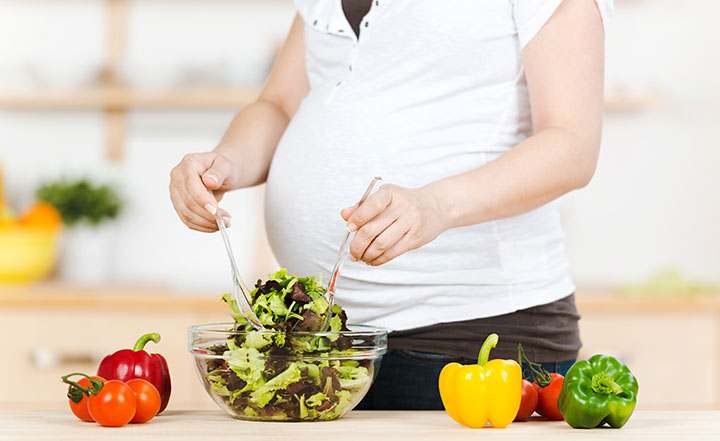The first thing that a woman does after she discovers that she is pregnant is start to take extra care of her body and what is going into it in order to ensure the good health of her baby! There’s no doubt that your body works overtime when you’re expecting and it can’t make a baby all on its own. It requires plenty of nutrients to baby-build, folic acid being one of the most important of all. Folic acid helps the body break down, use and create protein, the building block of our cells. It also plays a role in DNA creation and the formation of red blood cells.
In the first few weeks of pregnancy, folic acid helps the embryonic neural tube, the precursor to baby’s brain and spinal cord, to properly close. It also assists in the formation of the fetus’ heart and circulatory system and helps lower the chance your baby will have birth defects.
Because folic acid is water-soluble, your body does not store excess. Instead, it gets passed through your urine. That’s why you absolutely must regularly incorporate enough folic acid into your diet to avoid a deficiency when you’re pregnant. Since most birth defects develop in the first few weeks of pregnancy, it’s especially important to get enough folic acid as early on as possible.
A research conducted by Dr. Joshua Roffman of the Massachusetts General Hospital Department of Psychiatry explained to the Daily Mail:
The illnesses we are trying to prevent like autism and schizophrenia are really devastating and chronic, and we don’t know how to cure them. Trying to work out how to prevent them has been something of an elusive task, but previous studies really point to the womb as an important place to start. The result were what we hoped to see. Children with autism and schizophrenia have an early and accelerated thinning of the cerebral cortex. What we observed was the opposite. They had a delayed pattern of thinning in these regions. Dr. Roffman and his fellow researchers hope that the results of this study will encourage more women to take folic acid supplements throughout their pregnancies.
These are the few sources of Folic Acid –
All prenatal vitamins should contain at least 400 mcg of folic acid. Consider it your nutrient backup during pregnancy; it comes in handy especially on days when you feel too sick to eat. So aim to take yours every single day.
That said, a vitamin or a folic acid supplement simply can’t replace a healthy diet. It’s vital to eat plenty of folate-rich foods when you’re expecting, since they’re also full of many other important baby-making nutrients like fiber, calcium, Vitamin-A and Vitamin-C, to name a few. Some of the best food sources of folate to incorporate into your diet include:
- Dark leafy green vegetables: 263 mcg in 1 cup cooked spinach
- Avocado:120 mcg in 1 cup sliced
- Legumes: 250 to 350 mcg in 1 cup beans, lentils or peas
- Broccoli:168 mcg in 1 cup chopped and cooked
- Asparagus:134 mcg in 1/2 cup
- Beets:80 mcg in two small
- Orange:35 mcg in 3/4 cup
- Foods fortified with folic acid, including whole grain cereal, bread, pasta and rice







,